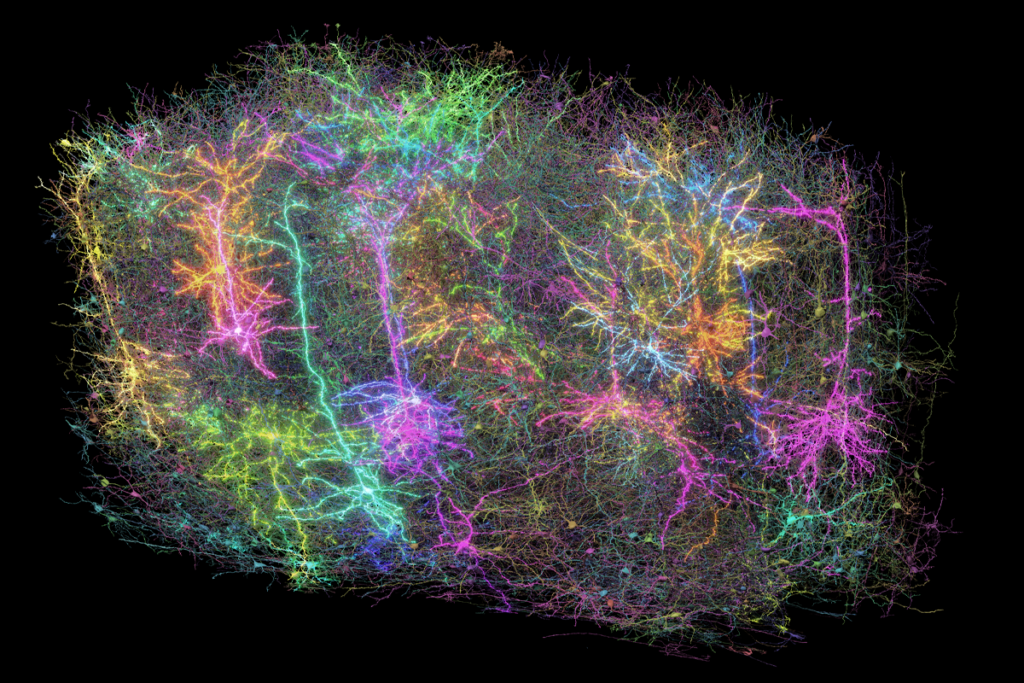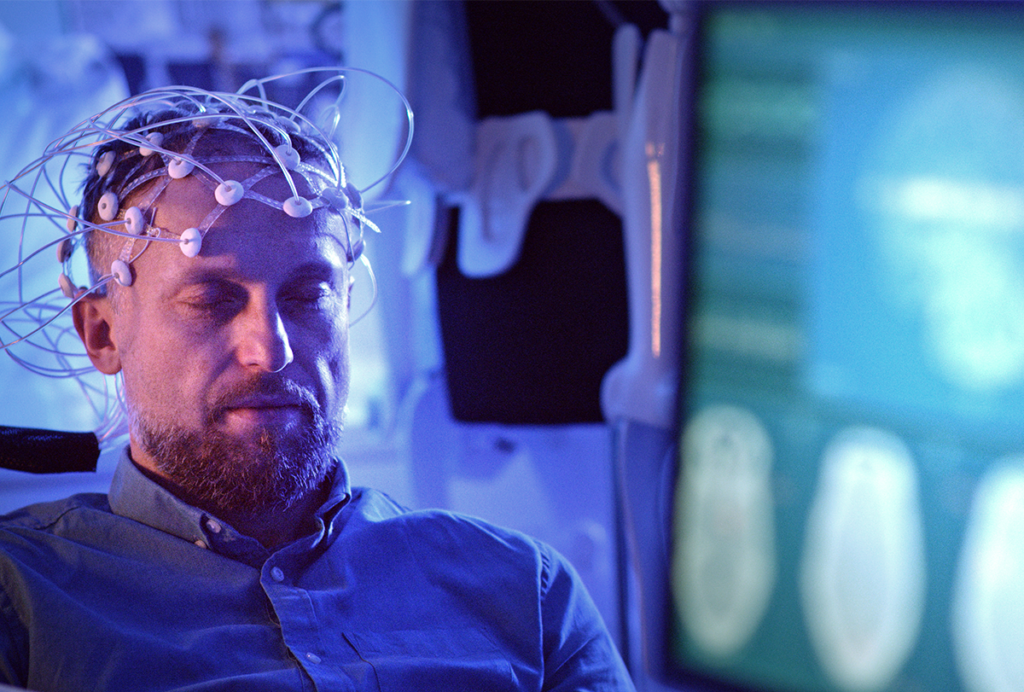Visual cortex
Recent articles
Inhibitory cells work in concert to orchestrate neuronal activity in mouse brain
A cubic millimeter of brain tissue, meticulously sectioned, stained and scrutinized over the past seven years, reveals in stunning detail the role of inhibitory interneurons in brain structure and function.

Inhibitory cells work in concert to orchestrate neuronal activity in mouse brain
A cubic millimeter of brain tissue, meticulously sectioned, stained and scrutinized over the past seven years, reveals in stunning detail the role of inhibitory interneurons in brain structure and function.
In memoriam: Yves Frégnac, influential and visionary French neuroscientist
Frégnac, who died on 18 October at the age of 73, built his career by meeting neuroscience’s complexity straight on.

In memoriam: Yves Frégnac, influential and visionary French neuroscientist
Frégnac, who died on 18 October at the age of 73, built his career by meeting neuroscience’s complexity straight on.
This paper changed my life: ‘Spontaneous cortical activity reveals hallmarks of an optimal internal model of the environment,’ from the Fiser Lab
Fiser’s work taught me how to think about grounding computational models in biologically plausible implementations.

This paper changed my life: ‘Spontaneous cortical activity reveals hallmarks of an optimal internal model of the environment,’ from the Fiser Lab
Fiser’s work taught me how to think about grounding computational models in biologically plausible implementations.
Remembering Peter Schiller, principled pioneer of vision research
Schiller, best known for his research on how the superior colliculus controls eye movements, died last month at the age of 92.

Remembering Peter Schiller, principled pioneer of vision research
Schiller, best known for his research on how the superior colliculus controls eye movements, died last month at the age of 92.
Explore more from The Transmitter
Noninvasive technologies can map and target human brain with unprecedented precision
But to fully grasp the tools’ potential, we need to better understand how electric and magnetic fields interact with the brain.

Noninvasive technologies can map and target human brain with unprecedented precision
But to fully grasp the tools’ potential, we need to better understand how electric and magnetic fields interact with the brain.
During decision-making, brain shows multiple distinct subtypes of activity
Person-to-person variability in brain activity might represent meaningful differences in cognitive processes, rather than random noise.

During decision-making, brain shows multiple distinct subtypes of activity
Person-to-person variability in brain activity might represent meaningful differences in cognitive processes, rather than random noise.
Basic pain research ‘is not working’: Q&A with Steven Prescott and Stéphanie Ratté
Prescott and Ratté critique the clinical relevance of preclinical studies in the field and highlight areas for improvement.

Basic pain research ‘is not working’: Q&A with Steven Prescott and Stéphanie Ratté
Prescott and Ratté critique the clinical relevance of preclinical studies in the field and highlight areas for improvement.